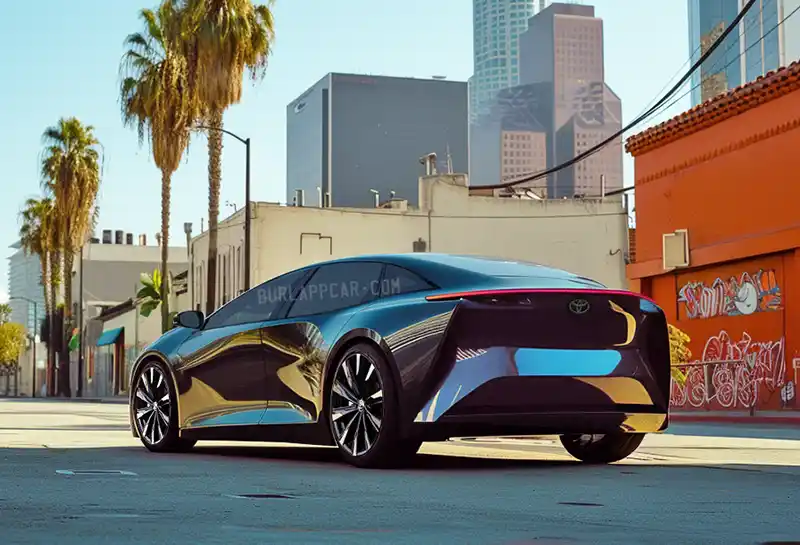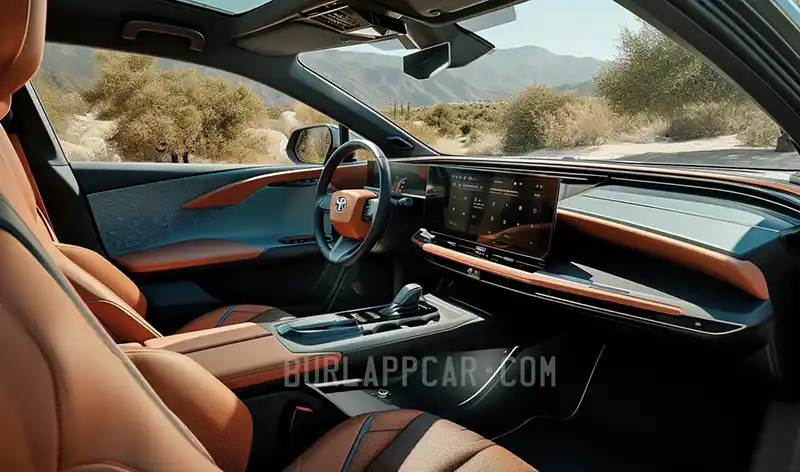Toyota Prius EV.
Last Updated:


The Prius started the Hybrid revolution for Toyota decades ago. A few months before the current new 2023 Prius came out, I remember people wondering if Toyota would ever offer it as an EV. As it turned out, the current Prius was not ready yet. But what about the next one?
Of course, it will be at least 5 years before we get to see a new-generation Prius. But in 5 years, there will be very few new ICE models coming out. Even Hybrids. Especially from Toyota, since by then, they will be in full swing pushing all their new EV models. These next-generation EVs will start coming out within a couple of years, and 5 years from now they will probably represent most of Toyota’s lineup.
Hybrid and even PHEV will be old tech and the Prius will need to re-invent itself one more time if it wants to survive. There will also probably be an affordable EV the size of the Corolla out. (There is one already in China, the bZ3). Toyota could make the Prius the sportier hatchback alternative. Just like the current model is.
By the next generation, the Toyota Prius could be a more upscale and even sportier model. It could be the car that gets Toyota’s latest tech like the solid-state batteries they claim to introduce by 2027. These will probably not be ready for large mass production by then, but 2 or 3 years later, who knows?
Let’s hope Toyota finds a way to keep the Prius relevant in the EV age. They’ve done such a grat job with the current generation.

I believe that for at minimum another 15 yrs, the hybrid will be relevant to a subgroup of buyers. That may not apply if you live in somewhere generally warm like CA, AZ, FL or TX. But the way to keep them relevant is to implement EV tech over into the hybrid system and that focuses on energy density, battery management, and weight… Oh! and materials/cost of course. And everyone is working on those issues. The side projects at Toyota and Honda for hydrogen combustion are an infrastructure pipedream that really can’t be scaled in most of the world – but perhaps it can in Japan. So, hybrids with gasoline will continue to be present. At some point though, I think we’ll see more model consolidation from companies like Toyota and Hyundai/Kia that have over proliferated their brands. That’ll make it easier to incorporate their technologies across their range, as Honda has already done, where there’s a CRV ICE, hybrid, PHEV, and soon there’ll be a FCEV. I wouldn’t doubt that Honda already has a roadmap for the CRV BEV to debut within 5yrs.
In 15 years, demand for ICE cars will have shrunk dramatically. Resulting in much less gas being produced. Filling up an ICE car will be more expensive than we can even imagine today. This and a much improved EV infrastructure on top of much faster charging speed will have pretty much killed ICE cars by then. All these will actually happen much sooner than in 15 years…
Except for the occasional oddball, or the few excentrics who won’t accept anything else than gas power cars. Like records and film cameras, ICE cars will just be an oddity. if you can even find gas to run them…
In 5 years Toyota/Lexus will definitely still be releasing new hybrids. They’ll ride that train until the very last minute.
15 years is a long ways away. Who knows what will happen. I see the reality of Toyota’s approach, however.
The flattening out of the EV demand curve is real, and it’s neither a simple fix nor a mere “perception” issue. You could wait for it to organically solve itself through supply and demand — make better EVs that more people want and can afford. That’s what pushed the initial demand curve.
Or the government could step in and drive the demand. Impose higher taxes on gas. Make it unaffordable to have an ICE vehicle. Ban gas altogether. There are consequences, of course. Those who can afford to pay more will continue to do so or switch to a less costly EV alternative. Those who can’t — what happens to them?
I think we are at a point now where there are still people who want an EV (not necessarily for the environmental benefit, but because they are pretty good cars), but it’s not practical. They don’t live in a SFH with a plug. Their electrical infrastructure from the utility can’t support installing a Level 2 charger. They have found public charging to not be practical.
I OWNED 4 PRIUS WHAT NEXT